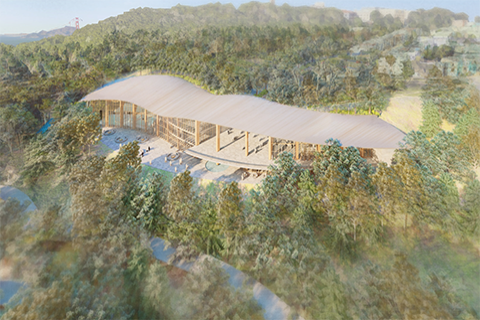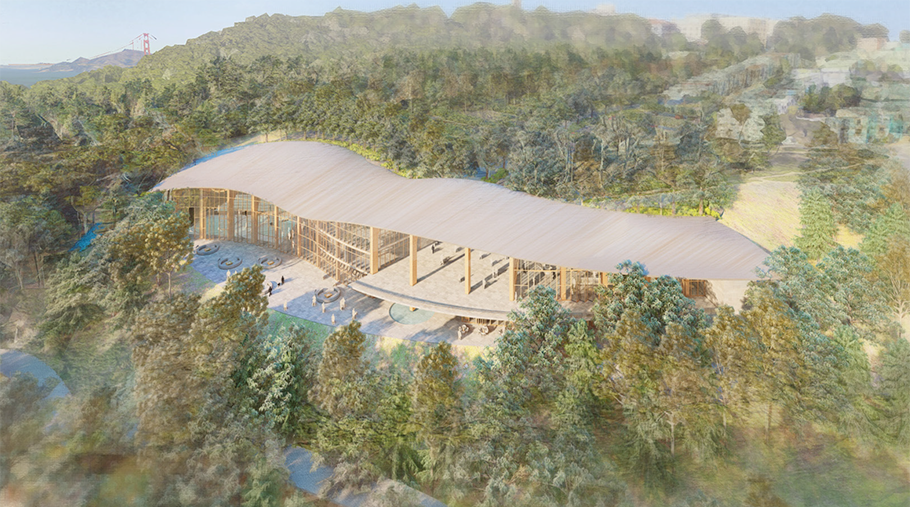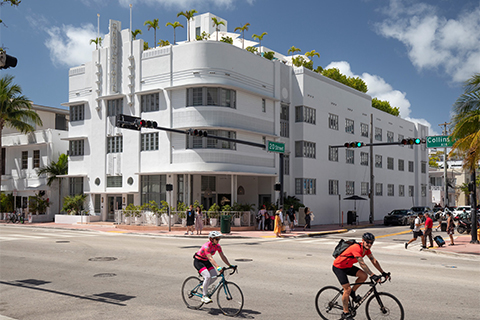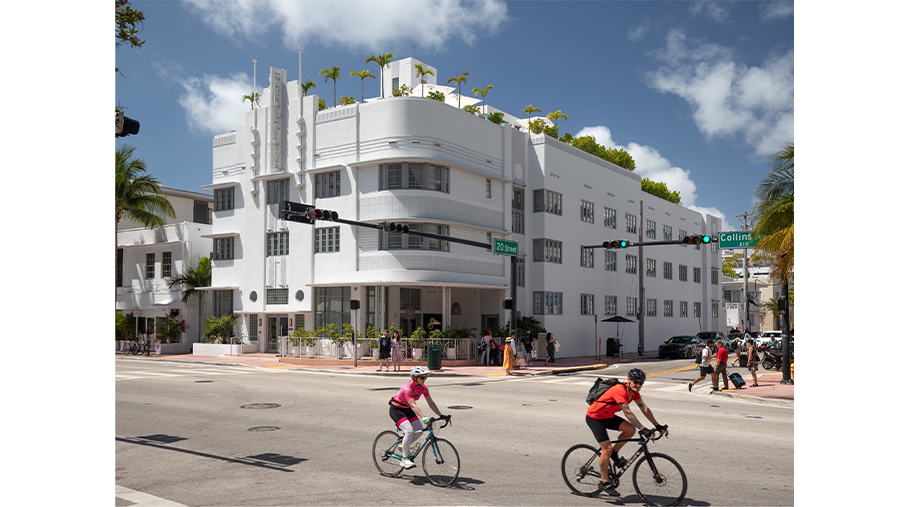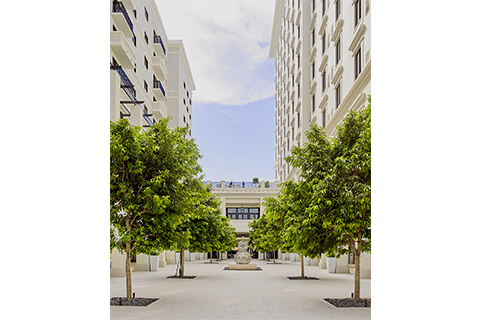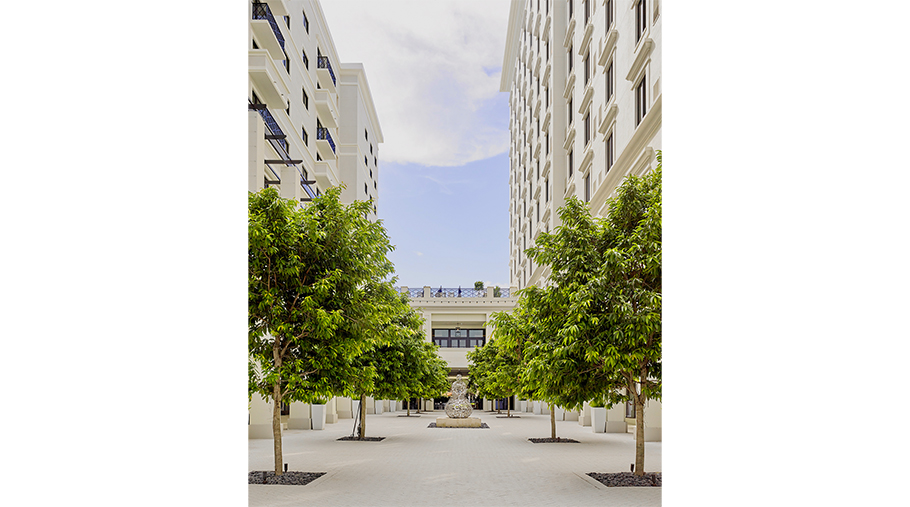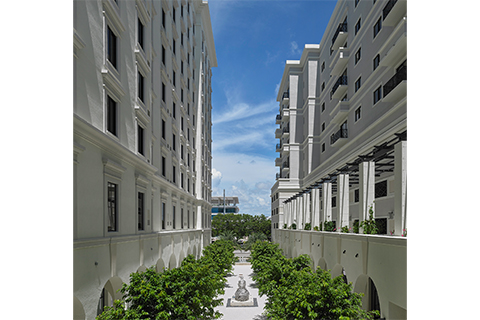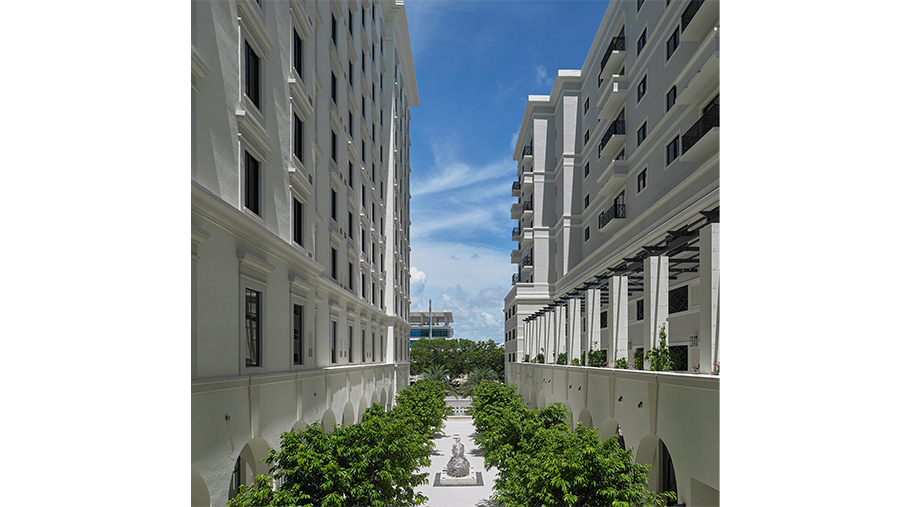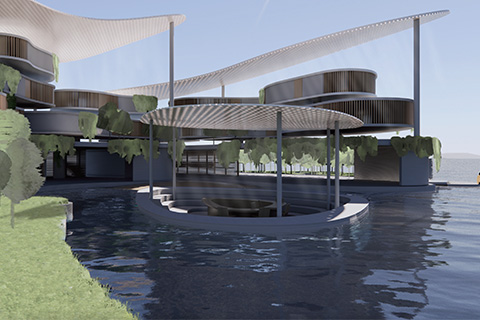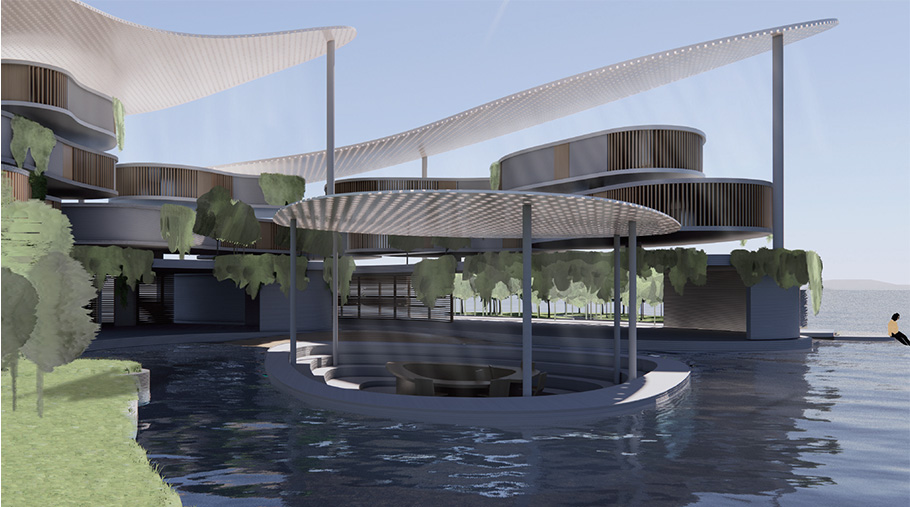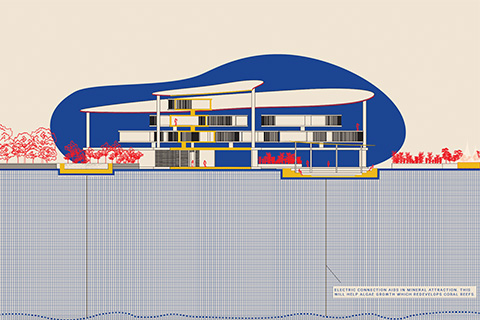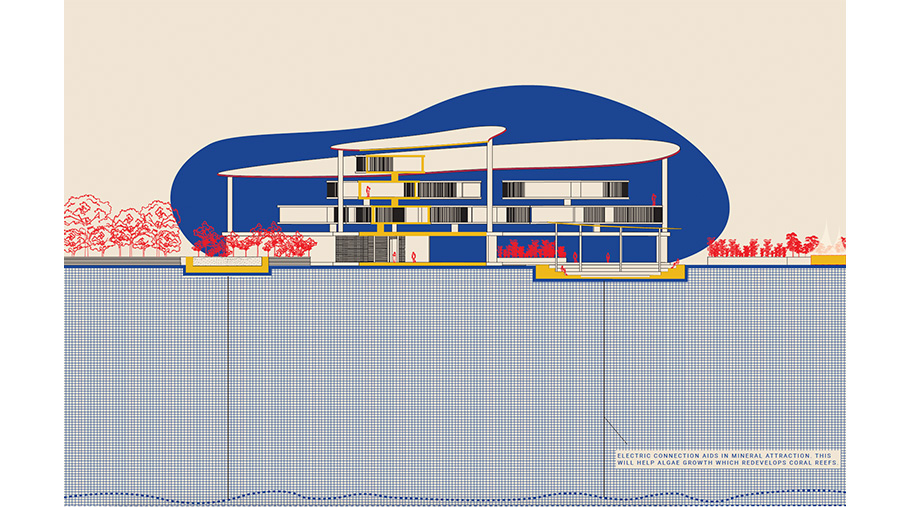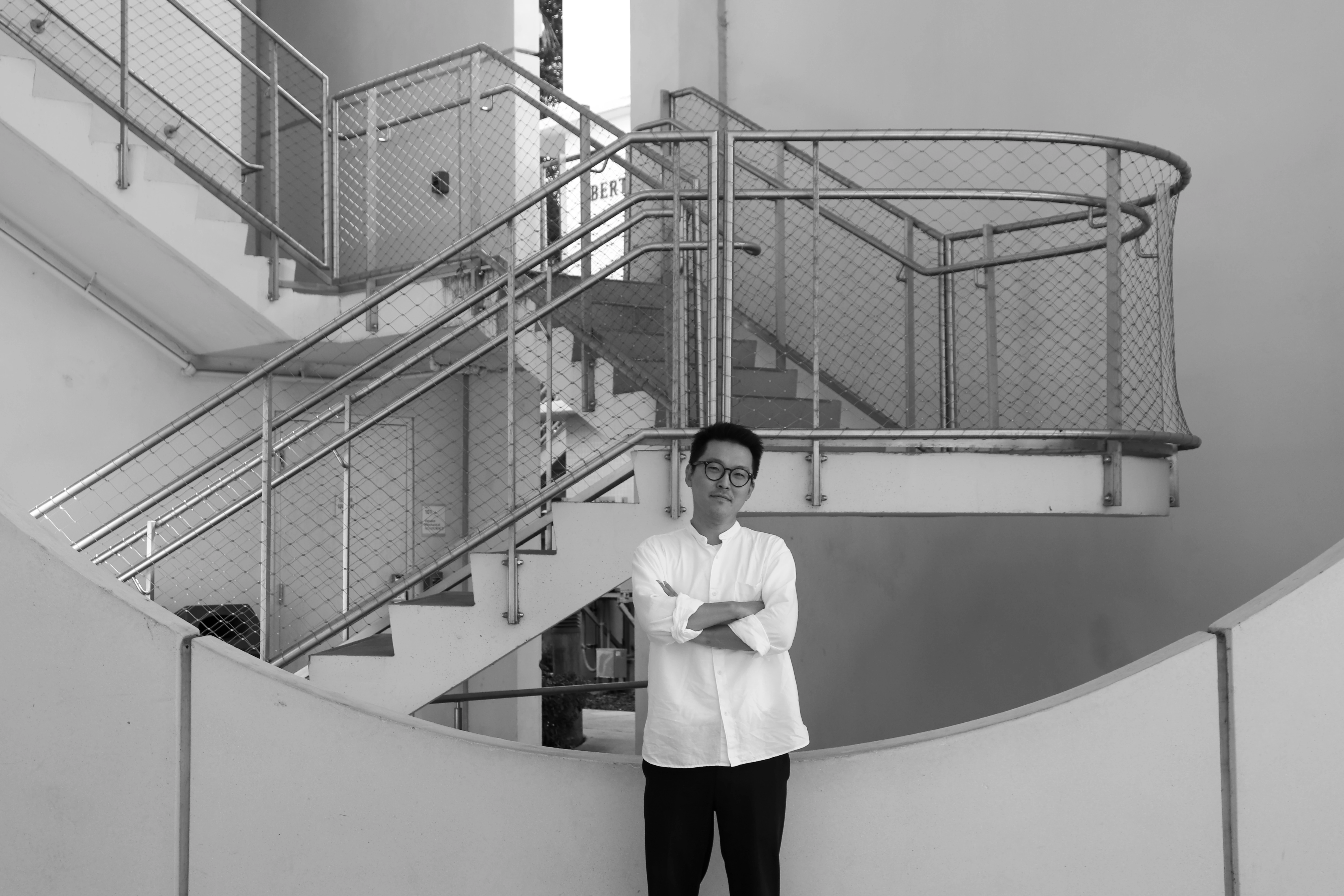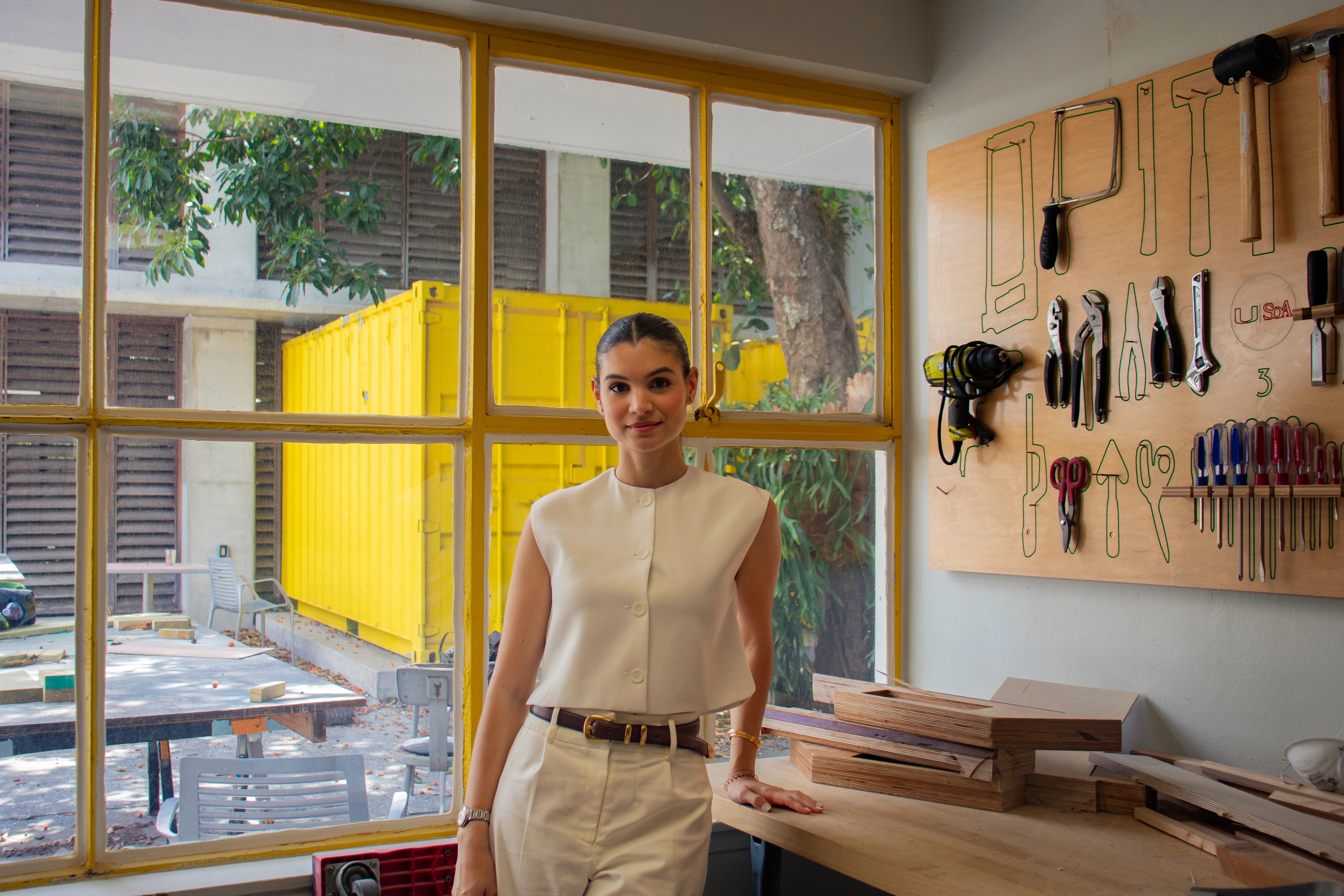
SENSORIAL AND RESTORATIVE DESIGN
Meet Mathilda Ron, a student in the Master of Science in Architecture program at the University of Miami, specializing in the Hospitality Design track.
What inspired you to pursue a Master of Science in Architecture?
During my undergraduate studies, I became fascinated with how hospitality and tropical architecture could intersect to define new futures in design. I knew I wanted to specialize in this field to learn from experts, deepen my research skills, and contribute meaningfully to the evolution of hospitality and housing architecture mainly in tropical climates. Pursuing a Master of Science in Architecture gave me the structure to focus specifically on these themes, helping me think not just as a designer but as a researcher and innovator.
What drew you to your specific track focus?
My interest in hospitality came from my desire to create spaces that are not only functional but sensorial and restorative. I've always wanted to work on projects where architecture and interior design merge into one seamless experience, especially in tropical settings where climate, comfort, and wellness are deeply intertwined. The hospitality track allows me to research how to improve guest experiences and environmental responsiveness in these climates.
How have the faculty, resources, or facilities contributed to your learning experience?
The faculty has played a massive role in shaping my learning experience. Professors like Allan Shulman and Steven Miller have challenged and inspired me through their teaching, mentorship, and the chance to see their design processes up close. I've had conversations in this program that have entirely changed how I think about architecture and design. These interactions have pushed me to explore new perspectives I hadn't considered before, and I'm truly grateful to be learning from them.
Can you share an example of a project or research endeavor you’ve worked on during the program that you're particularly proud of?
While the studio where I transformed an abandoned stadium into a hotel was incredibly enriching by blending adaptive reuse, urban design, and hospitality, my proudest work has been through my PAIR Program at OBMI. I'm developing a research project on a new typology of hospitality wellness rooms, guided by Professor Allan Shulman and OBMI's team. The blend of academic mentorship and real-world collaboration has been one of the most meaningful experiences of my career.
What skills or knowledge have you gained that you feel will be most beneficial in your career?
This program has expanded my perspective, not only with digital tools and research methodologies but also in how I think through problems and approach design from a more integrated, forward-thinking place. It's helped me evolve from executing projects to questioning and shaping them. I now feel much more equipped to propose innovative design strategies that reflect wellness, culture, and climate.
Are there specific opportunities, such as internships or networking events, that have been particularly impactful for you?
Working at OBMI has been one of the most transformative parts of my academic journey. Being part of a global firm has allowed me to learn from architects with diverse cultural backgrounds and design perspectives and to experience firsthand. In addition, the Tecnoglass Lecture Series at the University of Miami has been an incredible opportunity to hear from inspiring architects and expand my understanding of design practices. Together, these experiences have helped me grow both professionally and personally.
Where do you see yourself professionally in five years, and how has this program helped you work toward that vision?
In five years, I see myself designing wellness-focused spaces, whether resorts, retreats, and houses or hybrid typologies that reflect the culture and climate they exist in. I want to lead or co-lead projects where architecture and interior design combine seamlessly to create meaningful experiences. This program has helped me build the foundation and the vision to get there.



